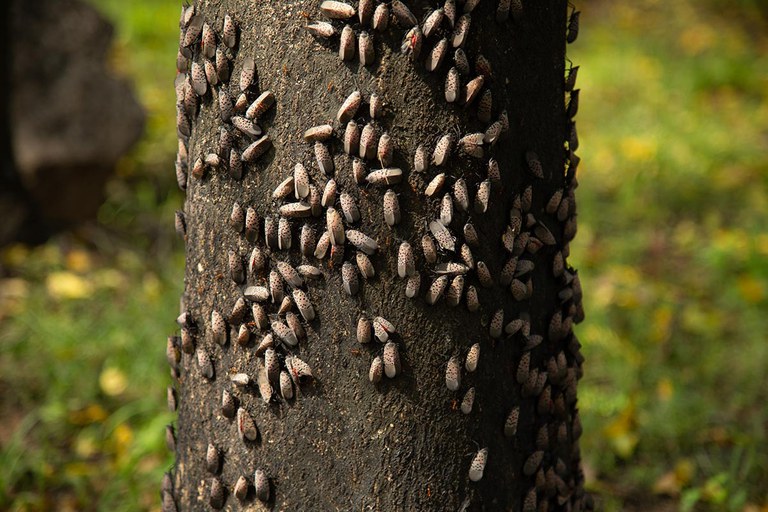Estimating potential damages and losses caused by the invasive spotted lanternfly
Problem
What is at stake if the spotted lanternfly continues to spread across Pennsylvania?
The spotted lanternfly—an invasive nonnative insect—feeds on the sap of fruit, ornamental, and woody plants, posing a significant threat to the state's economy.
- It was first discovered in southeastern Pennsylvania in 2014. It has since spread and is confirmed in 26 Pennsylvania counties, all of which are under a state-imposed quarantine. The insect has also been found in parts of the five surrounding states.
Findings
Researchers examined the impact of the spotted lanternfly on the economy, combining data from government reports, crop production experts, industry surveys, and interviews with stakeholders.
- In the quarantine zone, damage is currently estimated to be $50.1 million per year with a loss of 484 jobs. A worst-case scenario increases these damages to $92.8 million per year with a loss of 927 jobs. If it spreads throughout Pennsylvania, damages could reach as high as $554 million, with a loss of 4,987 jobs.
Impact
This study is the first to estimate the potential economic ramifications of the invasive spotted lanternfly and provides guideposts for decision makers in their response to this insect. The potential spread of this pest and the estimated economic damages outlined in this report argue for the continuance of existing programs, the strengthening of research and management efforts, and additional funding to fight this pest.
Related Research Areas: Community Resilience and Capacity, Environmental Resilience
Research Credit
Team
- Jayson Harper, Timothy W. Kelsey, Lynn Kime, William Stone
Participating Departments
Competitive Funding
- Center for Rural Pennsylvania
Federal and State Appropriations
- USDA NIFA Hatch Multistate Projects PEN04612 and PEN04633, Accession #1010877 and #1014522; USDA NIFA Smith-Lever Project PEN08103
Emerging Discoveries
Published Report
Potential Economic Impact of the Spotted Lanternfly on Agriculture and Forestry in Pennsylvania
Emerging Discovery
Office for Research and Graduate Education
Address
217 Agricultural Administration BuildingUniversity Park, PA 16802-2600
- Email agresearch@psu.edu
- Office 814-865-3136
Emerging Discovery
Office for Research and Graduate Education
Address
217 Agricultural Administration BuildingUniversity Park, PA 16802-2600
- Email agresearch@psu.edu
- Office 814-865-3136




